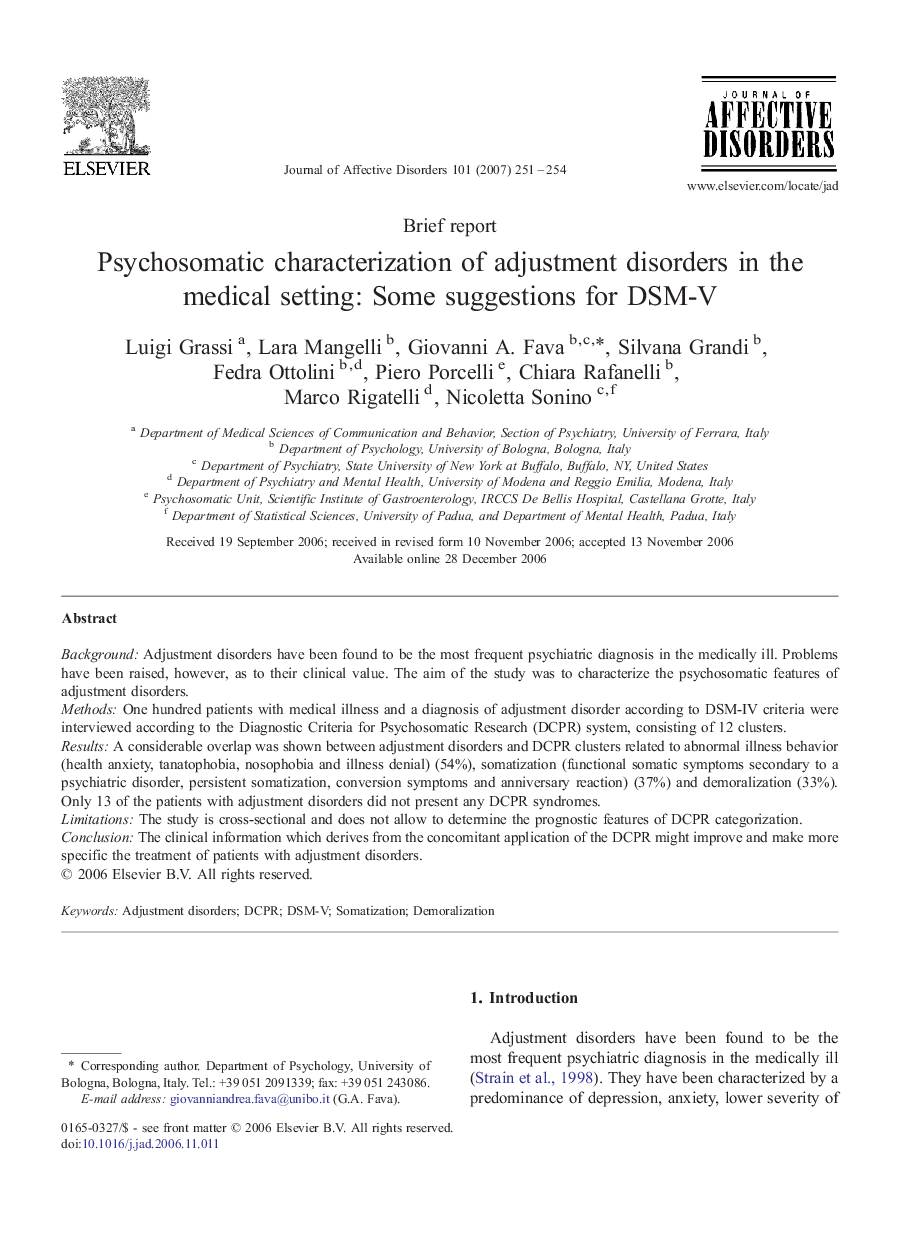| Article ID | Journal | Published Year | Pages | File Type |
|---|---|---|---|---|
| 4187778 | Journal of Affective Disorders | 2007 | 4 Pages |
BackgroundAdjustment disorders have been found to be the most frequent psychiatric diagnosis in the medically ill. Problems have been raised, however, as to their clinical value. The aim of the study was to characterize the psychosomatic features of adjustment disorders.MethodsOne hundred patients with medical illness and a diagnosis of adjustment disorder according to DSM-IV criteria were interviewed according to the Diagnostic Criteria for Psychosomatic Research (DCPR) system, consisting of 12 clusters.ResultsA considerable overlap was shown between adjustment disorders and DCPR clusters related to abnormal illness behavior (health anxiety, tanatophobia, nosophobia and illness denial) (54%), somatization (functional somatic symptoms secondary to a psychiatric disorder, persistent somatization, conversion symptoms and anniversary reaction) (37%) and demoralization (33%). Only 13 of the patients with adjustment disorders did not present any DCPR syndromes.LimitationsThe study is cross-sectional and does not allow to determine the prognostic features of DCPR categorization.ConclusionThe clinical information which derives from the concomitant application of the DCPR might improve and make more specific the treatment of patients with adjustment disorders.
